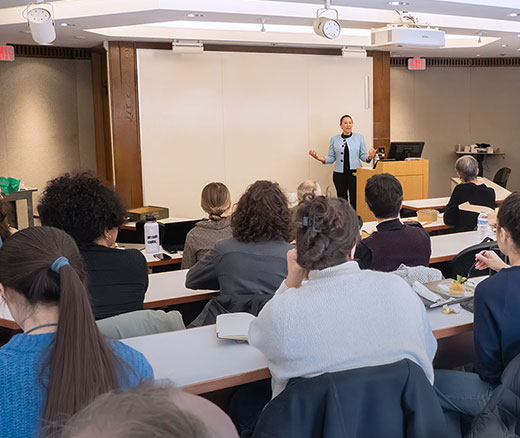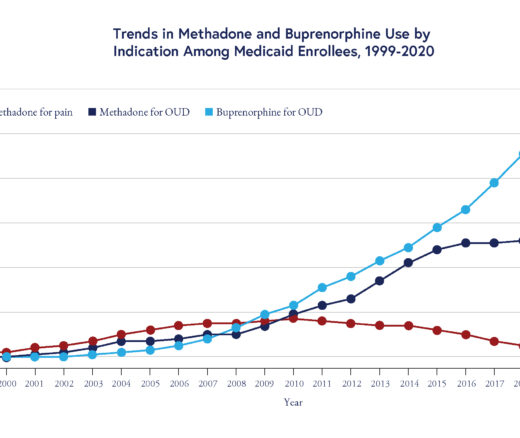
Only One in Four High-Risk Rural Births Get Appropriate Hospital Care
A Multi-State Study Finds That Parents Often Travel 60+ Miles—With Distance, Insurance, and Race Driving Gaps in Maternal Care
Substance Use Disorder
News
CHERISH, a collaborative national research center funded 10 years ago to study the health economics of substance use disorder treatment, hepatitis C (HCV), and HIV, has received a new $10.9 million National Institute on Drug Abuse (NIDA) grant to continue its studies for another five years.
The University of Pennsylvania’s Leonard Davis Institute of Health Economics (LDI) is a partner in the program headquartered at Cornell University’s Weill Cornell Medical College (WCM) in New York. The other partners are Boston Medical Center, Boston University School of Public Health, and University of Miami Miller School of Medicine.

Officially named the Center for Health Economics of Treatment Interventions for Substance Use Disorder, HCV and HIV (CHERISH), its NIDA Center of Excellence work unites leading institutions, conducts pioneering research, and provides consultation services, policy advice, large-scale data initiatives, and training for researchers across the U.S.
The grant renewal comes as drug overdose deaths in the United States have risen to record levels and as most of the 24 million people in the country who have substance use disorder do not receive life-saving treatment. Injection drug use is also associated with an increased risk of HCV, HIV, and bacterial infections. This complicated interconnection of overlapping health crises underscores the need for investigators and health care leaders to develop broader, better integrated, and more effective care delivery models.

Going forward in the organization’s second decade, CHERISH Director Bruce Schackman, PhD, MBA, said the organization will focus on strengthening the long-term financial support for programs that address substance use disorders, improving the way studies are designed and carried out, and making sure new findings reach the policymakers and practitioners who need them most.
Those goals build on earlier efforts in which the center helped weave substance use treatment into the broader health care system and measured both the economic and clinical impact of programs tackling substance use as well as HCV and HIV—work that examined outcomes for individuals, health systems, and entire communities.

In a continuation of its efforts to turn evidence into practice, CHERISH will host seminars to facilitate critical conversations with leaders at the federal, state, and local levels. “Maintaining channels for constructive dialogue will be critical as both the multiple health crises and the financing mechanisms for health care evolve,” said LDI Senior Fellow Zachary Meisel, MD, MPH, CHERISH Dissemination & Policy Core director.
Mentoring is also a crucial part of the collaborative’s activities. Its training initiatives provide students, early career investigators, and CHERISH pilot grant recipients with research and career guidance from dedicated peers and senior investigators. Its pilot grants support early career researchers and trainees in their economic studies of substance use disorder and HCV and HIV treatment interventions.
Other Penn personnel involved in CHERISH’s work are Margaret Lowenstein, MD, MSHP, an LDI Senior Fellow; Julia Hinckley, JD, LDI Director of Policy Strategy; Karl Stark, LDI Director of Content Strategy; Caleb Hearn, MPH, PMP, LDI Partnership Project Manager; and M Holliday Davis, a Clinical Research Coordinator at Penn Medicine’s Center for Addiction Medicine and Policy (CAMP).

A Multi-State Study Finds That Parents Often Travel 60+ Miles—With Distance, Insurance, and Race Driving Gaps in Maternal Care

Former CMMI Leader Liz Fowler Cites Rigid Federal Scoring Rules and Bureaucratic Impatience for Pilot Failures

A Major European–U.S. Hospital Study Finds That Changing How Hospitals Are Organized Reduces Burnout and Turnover While Improving Care Quality

An LDI Fellow Who Helped Architect the ACA Highlights Progress on Primary Care Payment Reform and the Expansion of Site-Neutral Reimbursement Policies

Penn LDI Senior Fellow Dominic Sisti Cites “Alarming Levels”

Chart of the Day: Methadone Use for Opioid Use Disorder Tripled From 2010–2020, Yet Only One in Four People With Addiction Receive Medication